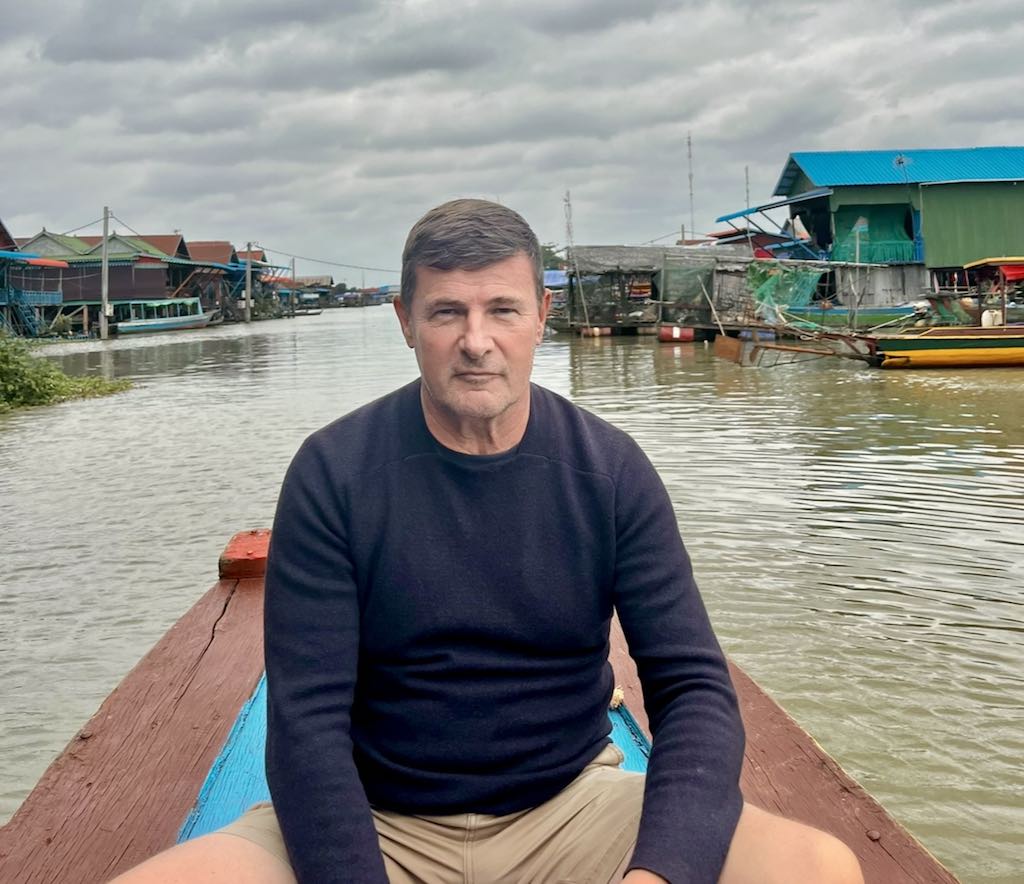Angkor, nestled in the heart of South-East Asia, is a sprawling testament to the grandeur of the Khmer Empire. You will find Khmer temple in Thailand, but this archaeological treasure spans over 400 km², with its ancient ruins set amidst lush forests. The Angkor Archaeological Park, as it is known, is a window into the past, showcasing the magnificent remnants of various Khmer capitals from the 9th to the 15th century. Among its many marvels, the Temple of Angkor Wat and the Bayon Temple at Angkor Thom are standout attractions, drawing visitors from around the globe. It is very easy to reach Siam Reap, where Angkor Archaeological Park is located, by plane from Bangkok. Read our article to get the best of your trip to Angkor and Siem Reap.
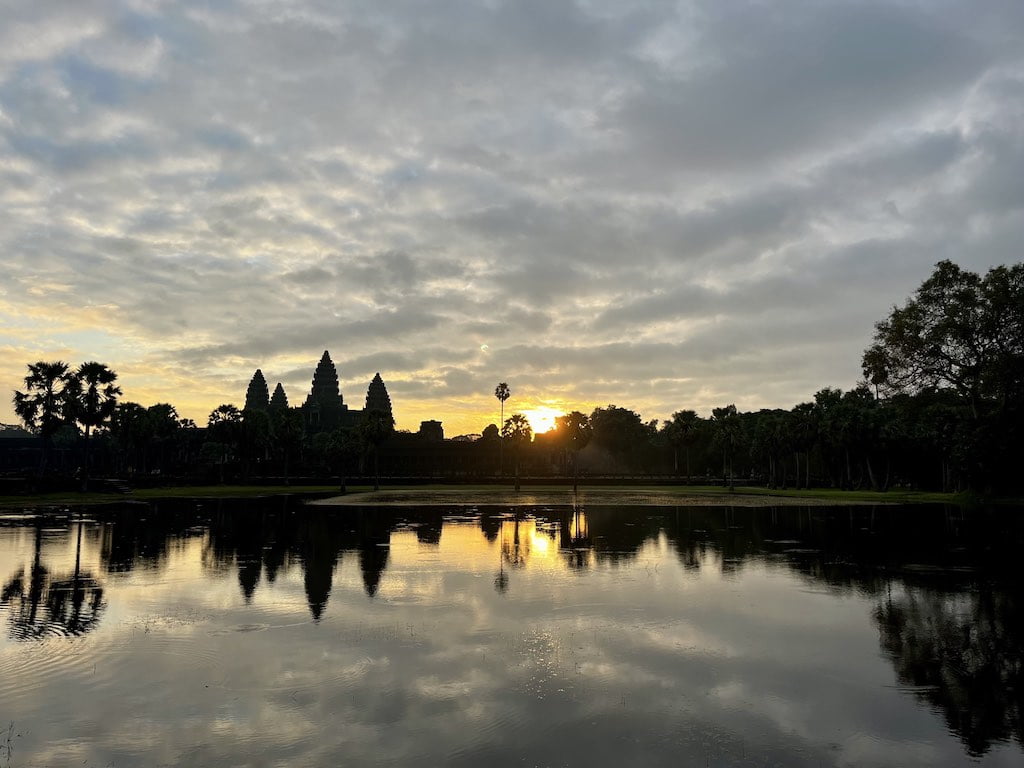
Sunrise
Angkor Archaeological Park
Angkor temples
The journey through Angkor is not just a walk through ruins; it is an immersive experience into a bygone era. Angkor Wat, in particular, is revered not only for its architectural brilliance but also for its spiritual significance. Originally built as a Hindu temple dedicated to the god Vishnu, it gradually transformed into a Buddhist site. Its five iconic towers, resembling lotus buds, have become symbols of Cambodia, even appearing on the national flag.
Moreover, Angkor Thom, the last capital of the Khmer Empire, captivates the imagination with its majestic gates and the enigmatic faces of the Bayon Temple. These faces, with their serene smiles, are etched into numerous towers, gazing out over the city. Historians and archaeologists believe these faces to represent Lokeshvara, a bodhisattva of compassion, albeit others see them as the visage of King Jayavarman VII himself, the ruler who commissioned Bayon.
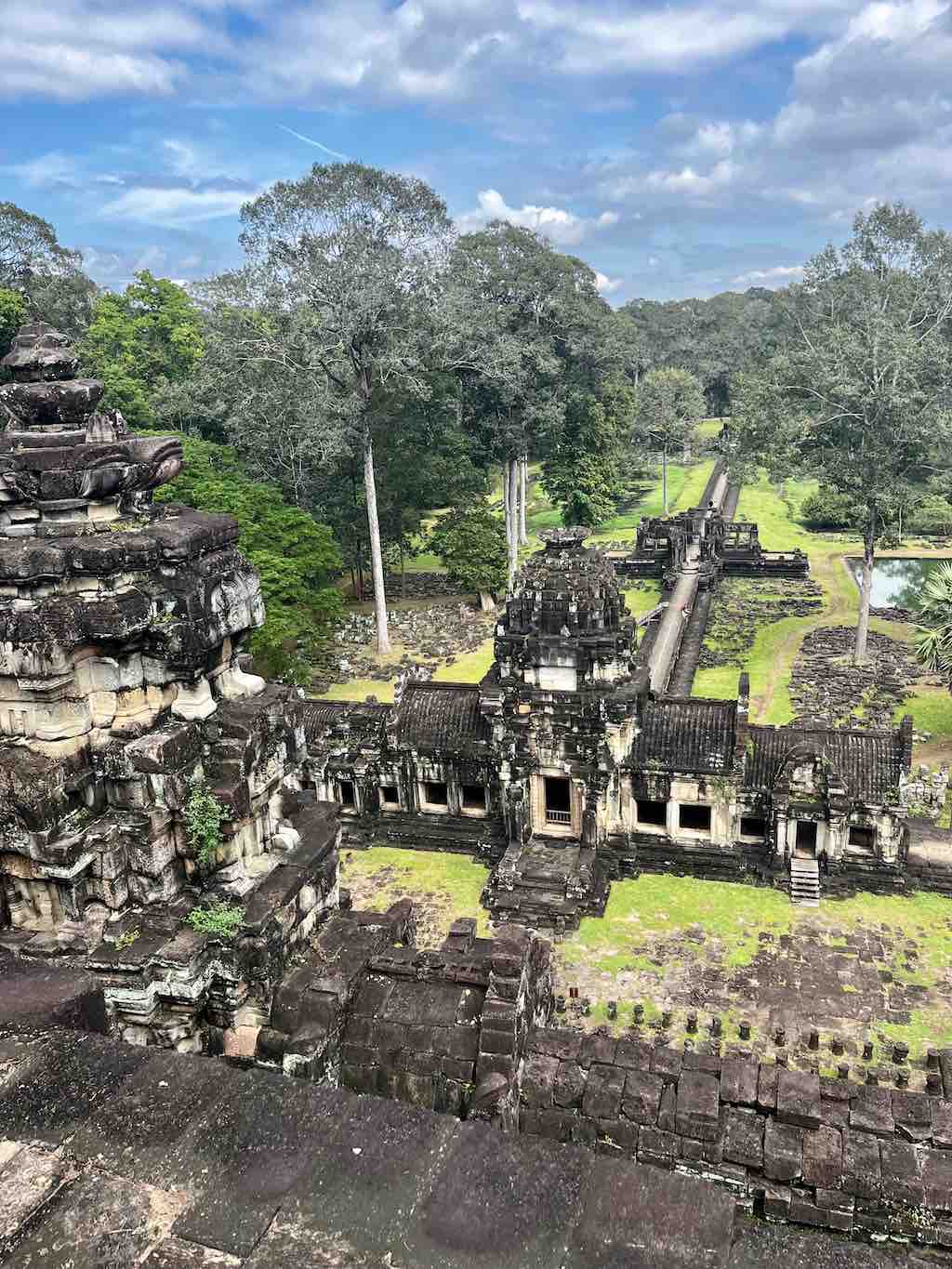
Angkor Thom
Beyond Angkor temples
But Angkor is more than its temples. It’s a complex network of hydraulic engineering marvels, including reservoirs and canals, essential for the irrigation and sustenance of the empire. This system underscores the advanced understanding of water management by the Khmer people, vital for supporting the large population and agriculture.
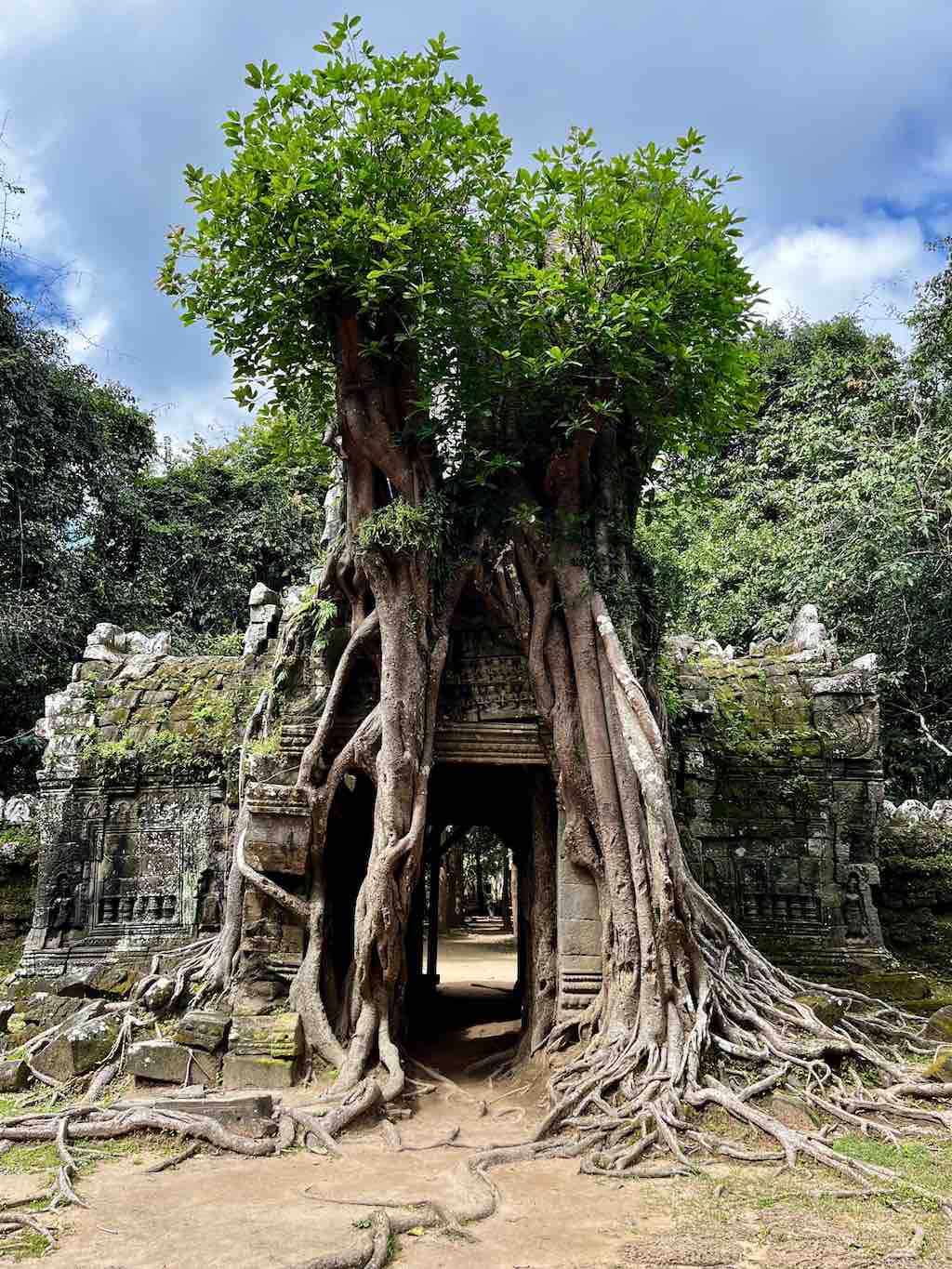
Ta Som
Indeed, the decline of Angkor remains a subject of study. Theories suggest a combination of factors, including war, religious transformation, and environmental changes, particularly the failure of its water management system, leading to the gradual abandonment of this majestic city.
Visiting Angkor today, one is struck by the intertwining of nature and architecture. Trees have woven their roots around stones, and the forest seems to reclaim the land, adding to the mystique of the place. Ta Prohm, another temple within the park, is a prime example of this phenomenon, famously featured in the movie “Tomb Raider.”
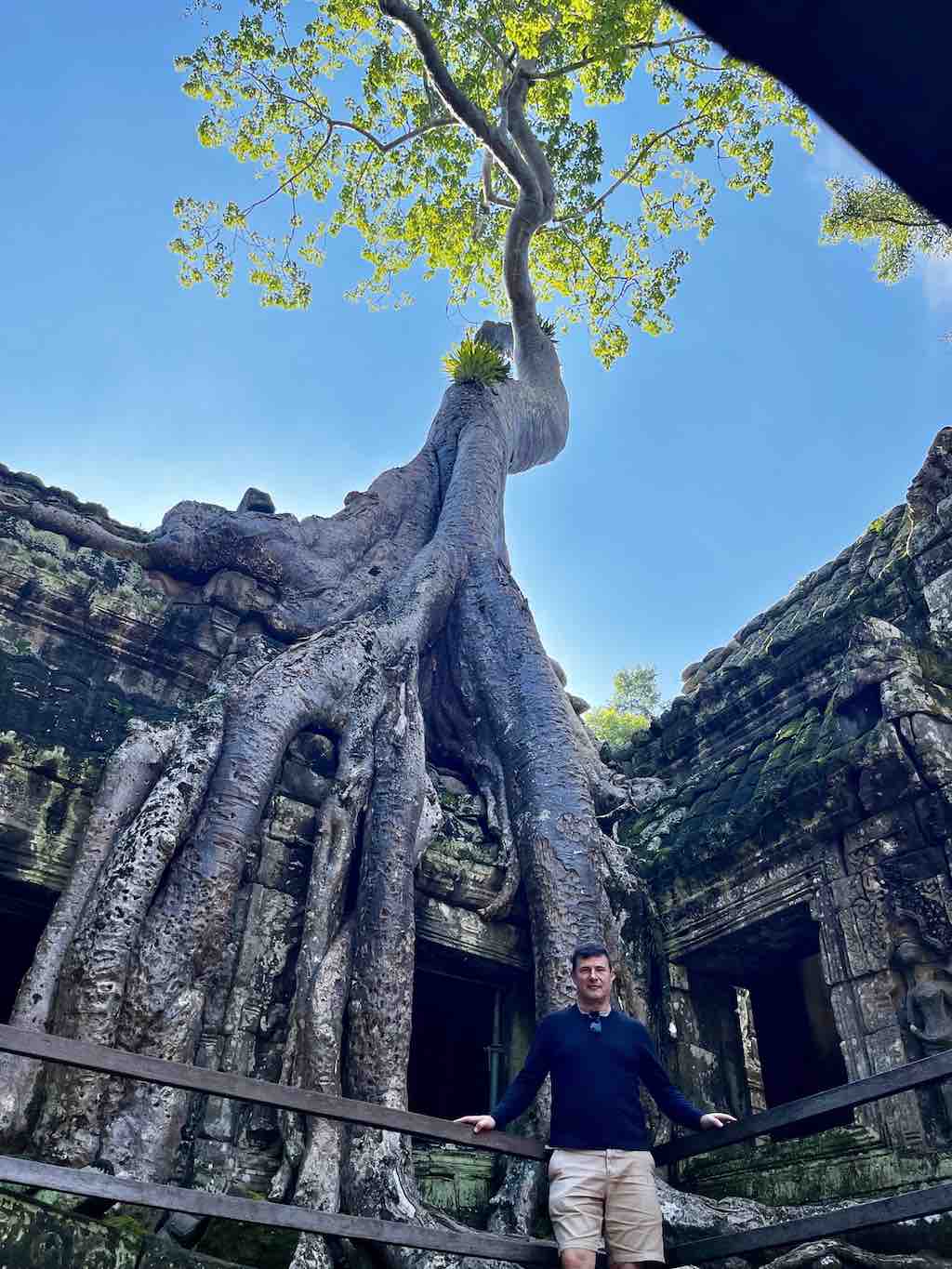
Ta Phrom
Around Siem Reap
Siem Reap, a gateway to the ancient world of Angkor, offers more than just temples. Beyond its historical marvels, the surroundings of Siem Reap are rich in natural beauty and cultural experiences. One such treasure is Kampong Phluk, a floating village that showcases a different side of Cambodian life.
Kampong Phluk is not just a village; it’s a community built on the water. Located on the edge of Tonle Sap Lake, this village stands on stilts, adapting to the ebb and flow of the lake’s waters. Life here is unique. The villagers navigate by boat, from homes to schools and even to the market. It’s a fascinating sight and a stark contrast to the bustling streets of Siem Reap.
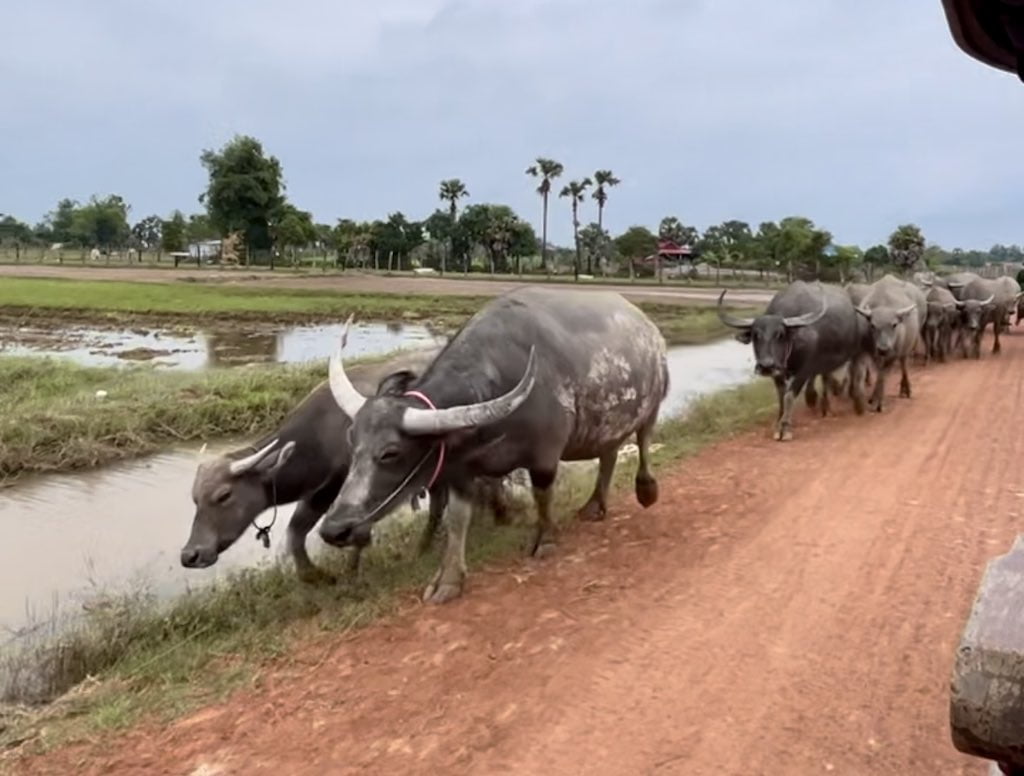
Around Siem Reap
Kampong Phluk
Moreover, Kampong Phluk offers a glimpse into the traditional Cambodian way of life. Fishing is a vital part of the community. The villagers are skilled in making the most of the lake’s resources. Visiting Kampong Phluk, you see firsthand how people live in harmony with nature. It’s a lesson in resilience and adaptability.
But Kampong Phluk is more than a place of living; it’s a place of natural beauty. The flooded forest surrounding the village is a serene spot. Here, you can take a quiet boat ride among the submerged trees. It’s peaceful and utterly beautiful. The sound of water gently lapping against the boat, the calls of birds, and the sight of the sun filtering through the leaves create a magical atmosphere.
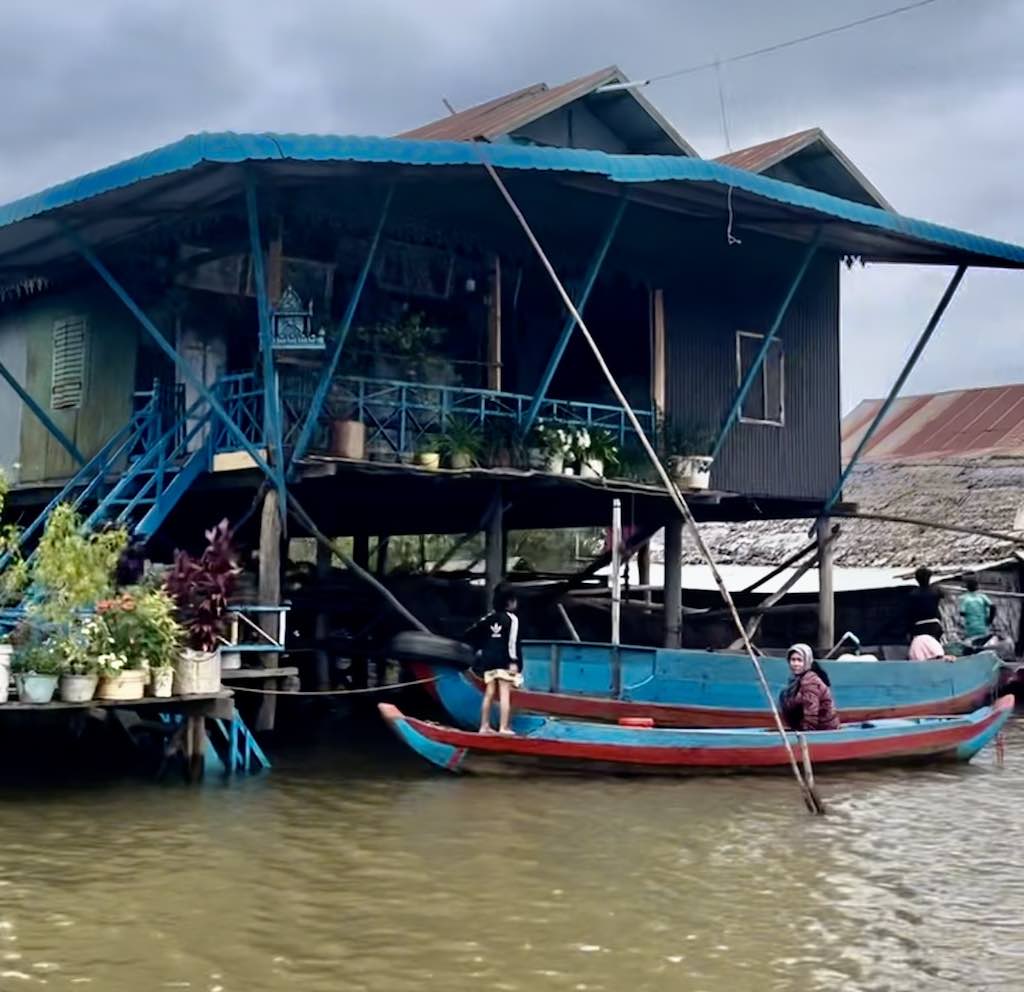
Kampong Phluk floating village
Indeed, a trip to Kampong Phluk enriches any visit to Siem Reap. It offers a different perspective, away from the ancient stones of Angkor. It reminds visitors of the vibrant culture and stunning natural landscapes Cambodia has to offer. Kampong Phluk is a must-visit for those looking to experience the authentic and diverse beauty of Cambodia.
